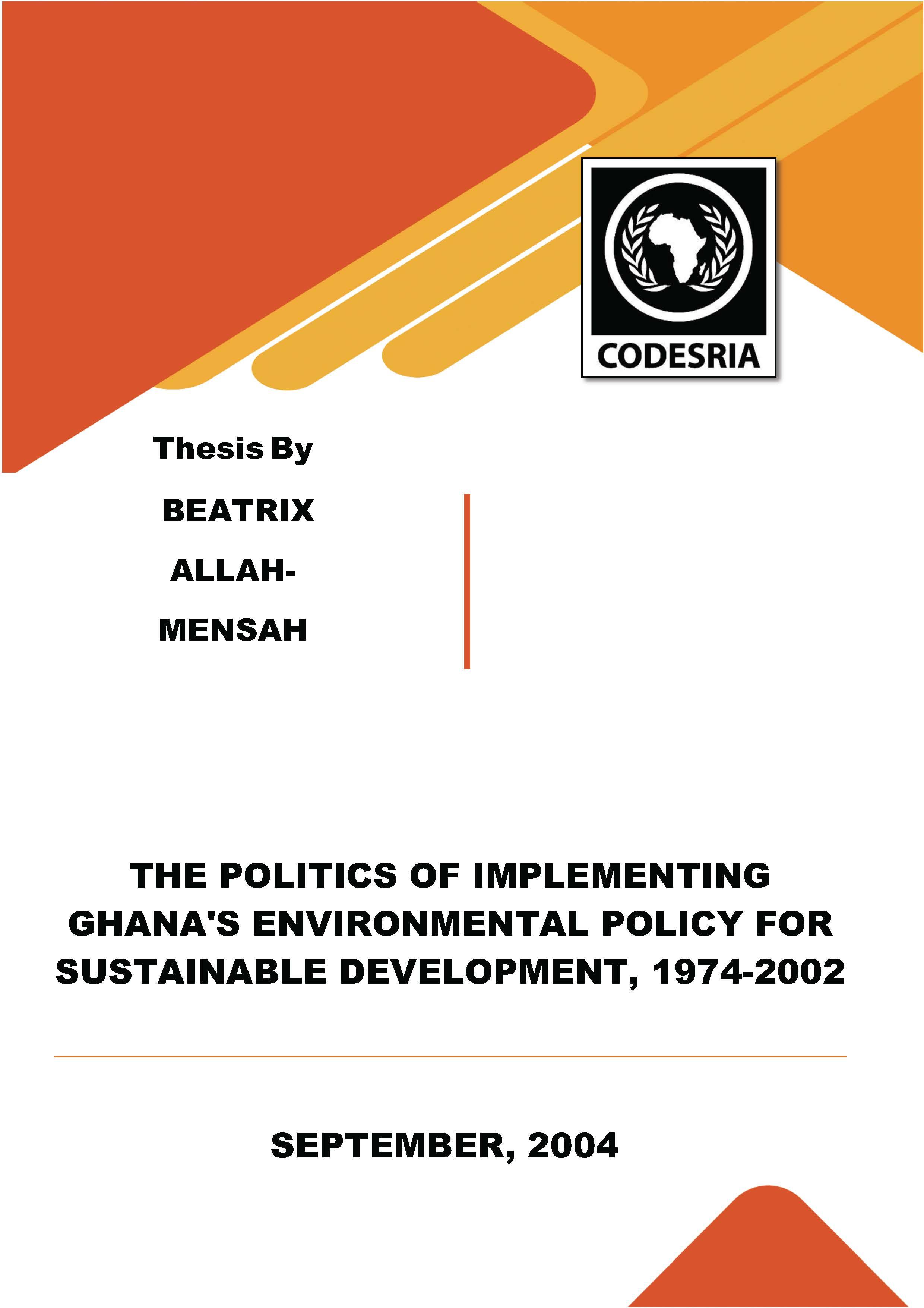The Politics of Implementing Ghana's Environmental Policy for Sustainable Development, 1974-2002
Keywords:
Environmental policy, sustainable development, forestry, environmental management, biodiversity, desertification, ozone depletion, environmentalism, GhanaSynopsis
The implementation of public policies in Ghana has been identified as the critical challenge facing the country. Some of the problems associated with implementation include the excessive top-down approach which tends to play down important stakeholders, like beneficiaries of policies, lack of political will, weak institutional linkages and responsibilities which also reflect who gets and does what, when and how. As such, laudable objectives set are not often achieved. These were some of the problems and concerns the study found with respect to implementation of the environmental policy as the broad framework within which other sectoral policies like the forestry and wildlife policy unfold. The study shows that, though Ghana's environmental problems are within the confines of the country, these could not be addressed without situating them within the global context since the search for environmental decorum has both global and local dimensions. There was no dispute with respect to the policies themselves. It however came out that the fonnulation and the implementation of the policies were tilted in favour of a top-down model despite inchoate attempt and reference in the policy documents to involve all relevant stakeholders. This affected the support from such "bottom-up", but key stakeholders like community members during the implementation process. Whilst the study did not find the lack of institutions, the institutional problem was the unclear linkages and to some extent, lack of trust among the actors and inadequate financial resource. It was also obvious that, even though successive governments have managed to show some commitment, it was not enough to translate policy objectives into expected results. The study found that, the implementation of environmental policy in Ghana has beencharacterized by .contestations (due to sev ral other factors) from the different stakeholders who play it out in different ways. Consequently, the problems of the forestry sector in particular and environment in general have not been fully addressed. The study recommends that there is need to blend the top-down arid the bottom-up models of implementation, withsupporting resources, which has the potential of addressing the identified challenges in the formulation and implementation process.






